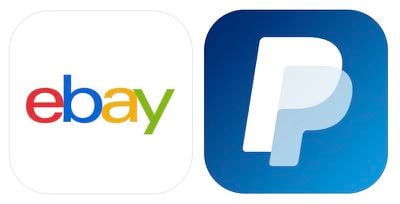eBay this week announced major changes coming for both buyers and sellers on its online marketplace, with a plan to phase out its 15-year-long partnership with PayPal and eventually integrate Amsterdam-based payments company Adyen as its "primary partner for payments processing globally" (via Recode). This will eventually affect all eBay customers on every version of the site, including desktop and its iOS and Android apps.
The process will happen over a long period of time, beginning with payments intermediation on its marketplace -- essentially helping sellers and buyers transition to Adyen -- in the second half of 2018. This will be a "small scale" initial expansion, and grow further throughout 2019. eBay currently has an operating agreement to keep PayPal as its primary payments processor through mid-2020, so the plan is to have "transitioned a majority" of its marketplace customers to Adyen by 2021.

After that time, PayPal will be relegated to a secondary checkout option for customers until July 2023. Following that transition it's unclear whether eBay and PayPal's partnership will end completely, or if the payments company will simply continue as a secondary option in checkout.
For Adyen, eBay noted that there will be "additional payments-related data" required to transition to the new platform, with these steps "required" to continue selling on eBay. Still, the company ensured that most of the ways that buyers and sellers pay for and receive money on the site will "be very similar" to how it worked with PayPal.
The way that sellers engage with eBay in an intermediated landscape will, for the most part, be very similar as they do today. For example, sellers will not need to change their accounts with eBay. Sellers will continue to log into eBay and manage their listings as they do today. As eBay begins to intermediate payments, sellers can expect to see new, streamlined dashboards and reports inclusive of payments – all within eBay.
eBay said customers will benefit from this shift in multiple ways, including lower costs of payments processing for sellers, as well as a simplified pricing structure and "more predictable access" to funds. Buyers will have more payment options, which eBay hopes will increase checkouts on the site. Additionally, because Adyen focuses solely on providing back-end payments services and will not link out to a secondary website, eBay said it will now "manage the entire checkout experience" so the payment process can be more streamlined.
PayPal became eBay's main payments provider in 2003, following eBay's acquisition of PayPal a year prior at $1.5 billion. In 2015, the companies split to become separate public companies, but agreed upon a deal that keeps PayPal as its primary payments provider for five years, through 2020. For PayPal, the company has been expanding its own reach in online payments over the past year, allowing friends to pay one another in Facebook Messenger and introducing Venmo as an online payment option at more than two million retailer websites last October.
Ahead of the launch of Apple Pay Cash -- which works like Venmo in letting users pay one another through an app -- PayPal CEO Dan Schulman said he didn't think Apple's peer-to-peer payments platform would hurt Venmo because of Venmo's availability across ecosystems. "We’re technology agnostic," Shulman said at the time, emphasizing that this provides the PayPal-owned company a "powerful advantage" over rival P2P platforms.























Top Rated Comments
Also, whenever I sell anything on eBay (which is rarely) I am shocked by how high all the fees are!
Off topic but I also wish eBay would require a credit card on file to have a buying account. So sick of non-paying bidders screwing up an auction.
For example, I just sold a video card. $720 B-I-N. The amount of cash I received was about $698. And I know that in a month, I'll get an invoice for selling fees.